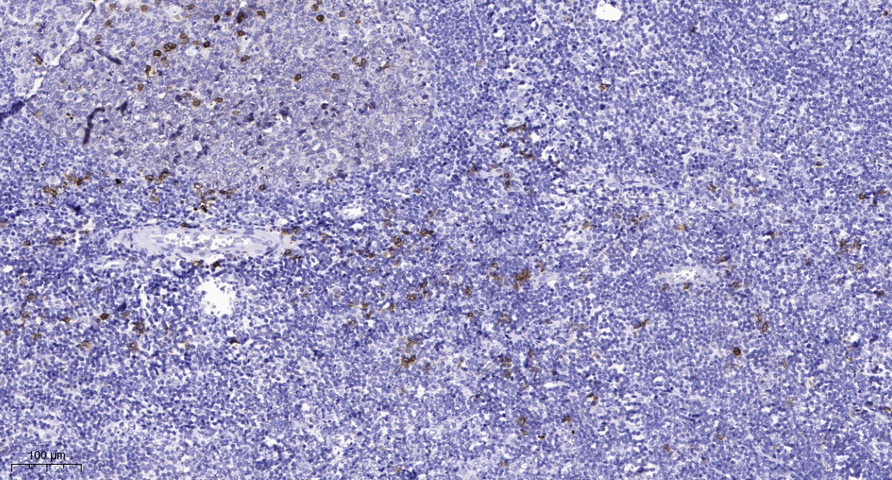S100G Polyclonal Antibody
- Catalog No.:YT6267
- Applications:IHC;ELISA
- Reactivity:Human;Mouse;Rat
- Target:
- S100G
- Fields:
- >>Mineral absorption
- Gene Name:
- S100G CABP9K CALB3 S100D
- Protein Name:
- S100G
- Human Gene Id:
- 795
- Human Swiss Prot No:
- P29377
- Immunogen:
- Synthesized peptide derived from human S100G AA range: 1-80
- Specificity:
- This antibody detects endogenous levels of human S100G
- Formulation:
- Liquid in PBS containing 50% glycerol, 0.5% BSA and 0.02% sodium azide.
- Source:
- Polyclonal, Rabbit,IgG
- Dilution:
- IHC 1:50-200, ELISA(peptide)1:5000-20000
- Purification:
- The antibody was affinity-purified from rabbit antiserum by affinity-chromatography using epitope-specific immunogen.
- Concentration:
- 1 mg/ml
- Storage Stability:
- -15°C to -25°C/1 year(Do not lower than -25°C)
- Other Name:
- Protein S100-G (Calbindin-D9k;S100 calcium-binding protein G;Vitamin D-dependent calcium-binding protein, intestinal;CABP)
- Background:
- This gene encodes calbindin D9K, a vitamin D-dependent calcium-binding protein. This cytosolic protein belongs to a family of calcium-binding proteins that includes calmodulin, parvalbumin, troponin C, and S100 protein. In the intestine, the protein is vitamin D-dependent and its expression correlates with calcium transport activity. The protein may increase Ca2+ absorption by buffering Ca2+ in the cytoplasm and increase ATP-dependent Ca2+ transport in duodenal basolateral membrane vesicles. [provided by RefSeq, Jul 2008],
- Function:
- similarity:Belongs to the S-100 family.,similarity:Contains 2 EF-hand domains.,
- Subcellular Location:
- basolateral plasma membrane,apical plasma membrane,
- June 19-2018
- WESTERN IMMUNOBLOTTING PROTOCOL
- June 19-2018
- IMMUNOHISTOCHEMISTRY-PARAFFIN PROTOCOL
- June 19-2018
- IMMUNOFLUORESCENCE PROTOCOL
- September 08-2020
- FLOW-CYTOMEYRT-PROTOCOL
- May 20-2022
- Cell-Based ELISA│解您多样本WB检测之困扰
- July 13-2018
- CELL-BASED-ELISA-PROTOCOL-FOR-ACETYL-PROTEIN
- July 13-2018
- CELL-BASED-ELISA-PROTOCOL-FOR-PHOSPHO-PROTEIN
- July 13-2018
- Antibody-FAQs
- Products Images

- Immunohistochemical analysis of paraffin-embedded human tonsil. 1, Antibody was diluted at 1:200(4° overnight). 2, Tris-EDTA,pH9.0 was used for antigen retrieval. 3,Secondary antibody was diluted at 1:200(room temperature, 45min).



